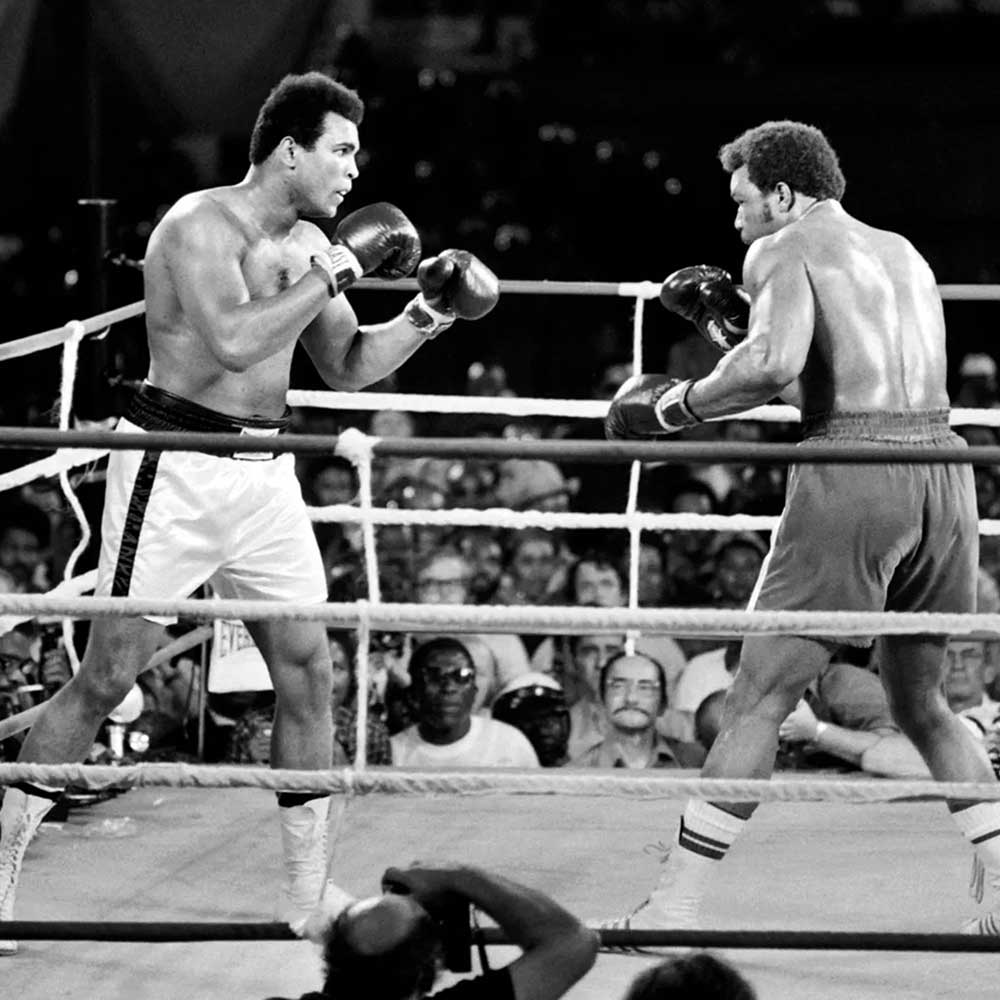
Boxing:The Rumble in the Jungle (Ali vs. Foreman, 1974)
The Rumble in the Jungle: Muhammad Ali vs. George Foreman, 1974
The night of October 30, 1974, in Kinshasa, Zaire (now the Democratic Republic of Congo), witnessed one of the most legendary events in boxing history: Muhammad Ali versus George Foreman—“The Rumble in the Jungle.” This was more than a boxing match; it was a seismic cultural moment, a symbolic clash of styles, personas, and ideologies played out under the African moonlight.
A World Watching
The fight was historic for numerous reasons. It was the first heavyweight title bout held in Africa, orchestrated by promoter Don King and backed by Zaire’s President Mobutu Sese Seko. Over a billion people worldwide watched the event, while 60,000 fans packed the Stade du 20 Mai to witness the charismatic challenger, Muhammad Ali, face the fearsome reigning champion, George Foreman.
Foreman entered the ring undefeated, having brutally defeated notable opponents like Joe Frazier and Ken Norton—both of whom had previously bested Ali. Most experts expected Ali to be overwhelmed by Foreman’s raw power. But Ali had a plan that would forever change the sport.
The Rope-a-Dope Strategy
Ali unveiled what would become known as the “rope-a-dope” tactic—leaning back against the ropes, absorbing punches, and letting Foreman exhaust himself. This daring, counterintuitive strategy involved Ali taunting Foreman, whispering insults, and absorbing punishment with remarkable resilience, all while conserving his energy and reading his opponent.
In the eighth round, Ali unleashed a lightning-fast combination with surgical precision, flooring the champion. Foreman never recovered, and the referee counted him out. The stadium erupted in jubilation. Ali reclaimed the heavyweight title—not just as a fighter but as a global icon of resilience, intelligence, and brilliance.
Symbolism and Significance
The Rumble in the Jungle transcended boxing. It was a fight steeped in politics, pride, and personal transformation. Ali, once vilified for his refusal to be drafted and for changing his name, had become beloved worldwide—especially across Africa. His victory symbolized not only athletic triumph but redemption, cultural pride, and the power of intellect over brute force.
This bout remains one of the greatest moments in sports history—an enduring testament to strategy, mental toughness, and the artistry of the sweet science. Muhammad Ali didn’t just beat Foreman; he reshaped what it meant to be a champion.
Author: Paragon Elite Fight Group – Research and Development Team
Published: 28/05/2025
Website: www.paragonelitefight.com
Contact: info@paragonelitefight.com
At Paragon Elite Fight, we don’t just train—we evolve. Born from Hellas and forged in the legacy of Pankration, we pursue excellence, innovation, and authenticity relentlessly. Every word honors real warriors, real battles, and the enduring spirit of those who choose the hard road—the worthy road.
Whether in the cage, on the streets, or in life, we create for those who train harder, think deeper, and never stop fighting.
Join us at www.paragonelitefight.com to explore more articles, elite gear, and resources crafted for fighters who demand more from themselves—and their tools.
